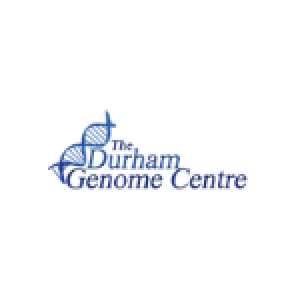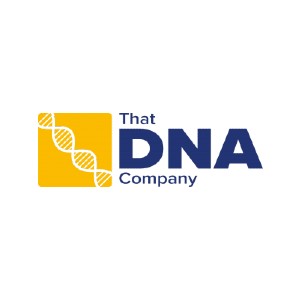Here we list some of our most commonly asked questions.
If you have any questions that are not listed in our FAQs or you would like to discuss an enquiry or an order, please feel free to call us on 0191 543 6334 or 0203 603 1323, or e-mail us at sales@dadcheckgold.com.
We also gave a Glossary of Common Terms that you may see in paternity testing reports.
Filter By:
For Local Authority and legal profession clients our Non-Invasive Prenatal Paternity Testing (NIPPT) service using DNA technology is now available in partnership with Eurofins-Genoma, PaternitySafe®
Benefits of establishing paternity prior to birth include the following:
- Establishing paternity before birth can help resolve custody, visitation and child maintenance arrangements
- Helps to inform decision making about safeguarding and well being of the child
- Gives clear paternity evidence for any court or mediation proceedings
- Enhances co-operation between the parties.
Determine the biological father of an unborn baby from only 10 weeks pregnant.
- Non-invasive sampling – 100% risk-free for mum and baby
- Professional home sample collection appointments for mother and possible father available – collection fees apply
- Results approximately 10 working days from sample receipt at processing laboratory
We are listed as one of the Companies on the Ministry of Justice’s List of approved bodies for conducting DNA tests but this (list) is specifically for parentage tests conducted for the Courts. Please note that complex DNA tests such as prenatal paternity tests are outside the current scope of the Company’s ISO17025 accreditation.
Contact us today for further information
Quality Control
Accredited Paternity DNA Testing
Consent to Testing and Parental Responsibility
Relationship DNA testing can be a life-changing event for those involved.
If you find that any person requires extra support to deal with the outcome of a DNA test, then there are a number of online resources for support with this:
npefellowship.org The international organisation, the NPE (Non-Parental Event) Friends Fellowship provides emotional, educational and practical support to those who have discovered that one or both parents were not their biological parent(s).
bps.org.uk It is always recommended that people speak to their GP or support worker for advice before reaching out to a phycologist. If families do need the services of a psychologist, then they can do so through the link provided.
The dadcheck®gold paternity test is conclusive (a Probability of Paternity greater than 99.999%) if we can test all three of the child, mother and alleged father.
A test without a sample from the mother will not provide the same degree of certainty as a test with samples from both parents.
Similarly, for immigration purposes, a maternity test will be less conclusive if we are unable to test the father.
However, for various reasons, it is not always possible to gain access to both parents. For example, we have had court ordered tests where the mother has agreed to the test but then cannot be contacted by the local authority for an appointment. In such cases, and upon instruction from the ordering party, we are obliged to proceed with the child and the alleged father only. In any event, the alleged father may be excluded from parentage with 100% certainty whether the mother participates or not.
Using the latest DNA testing technology, we provide genetic tests to decipher close human biological relationships.
Most often, we work out whether or not an individual male is the biological father of a particular child. This is also called a paternity test.
Each and every one of us is unique. This uniqueness comes from our genetic code, which we have inherited equally from our biological mother and biological father. The dadcheck®gold paternity test detects the presence of regions of this unique genetic code (shown as discrete bands), which can then be used to determine if individuals are related or not. We analyse the genetic code and display the results from tested people such that we can see if every band in the child is also present in the parents. If so, there is a good chance that the child and parents are biologically related.
We can also offer tests to examine relatedness between siblings (full or half), uncles and aunts (to nieces and nephews) and grand-parentage tests (to grandchildren). These are often requested for example, in inheritance cases or when the alleged father is unavailable. We also conduct tests to support immigration applications, which tend to require both paternity and maternity tests.
The LAA have provided Guidance on the Remuneration of Expert Witnesses in Family Cases and therefore our fees are within the guidelines set by the Remuneration Regulations, hence for most of the cases you have with us, prior authority for higher charges from the LAA should not be required.
You (as Lead Body and contracting party) must discuss with us beforehand if you or any other party to the case are likely to be applying for a Legal Aid Agency certificate. This is because the LAA will apportion costs across a number of certificates (with a letter of authority for each) and we may be able to assist the Lead Body by directly issuing correctly apportioned invoices to the parties.
Responsibility for the entire payment with respect to the case still however resides with the Lead Body as part of the Contract between Complement Genomics Ltd (dadcheck®gold) and the Lead Body (the test ordering party).
The Remuneration Regulations makes special mention of DNA testing rates. This is on a per test basis, with a separate fee for report drafting. The LAA specifically will not pay above the rates set in the Remuneration Regulations unless there is a prior authority in place. However, for the most part this should not be necessary.
Exceptions may arise, for example, if we need to hire the services of an interpreter to explain consent and its implications of if we have a situation where a close male relative could be the father. In the latter case the situation can become complex, and we may have to test more markers and carry out additional experimentation. We may in other cases and after experimentation, observe genetic changes which must be explained. In such cases, we will provide information and justification for the Lead Body to seek prior authority from the LAA for higher or further fees.
The Regulations define a DNA test as “[alleged] father and child (plus mother if required)”. This rate is given at £252.00 plus VAT. Under the Regulations, the amount increases by £133.00 for each additional child tested. On occasion, there is more than one alleged father to be tested. Under the Regulations, each separate alleged father is to be considered part of a separate test. For preparation for a DNA report, the Regulations suggest a fee of £72.00 ex VAT. The hourly rate for a Geneticist (who is required to review the case), is £86.40 now ex VAT per hour.
If your test is court ordered under s20 of the Family Law Reform Act 1969, then please provide a copy of the Court Order for our records. As we appreciate that events can move quite quickly, we will accept a written deposition from the Lead Body that the Court Order is in process.
“Accuracy” is often confused with “certainty”. All our tests are 100% accurate.
You need to know the level of certainty, which in the case of an inclusion, we give as a probability of paternity (see Glossary). A dadcheck®gold paternity test proves that a tested man is the father of a child with greater than 99.999% certainty (if the mother is involved in the testing process). Please note that this figure can be reduced if the mother of the tested child does not participate in the test. Conversely, a dadcheck®gold paternity test proves with 100% certainty if a man is not the father of a child.
We begin organising the sample collection appointments as soon as we receive your instruction, so please ensure you provide us with the best contact information for the participants or their representatives.
From the time we receive all the case samples into the laboratory, the test will take up to 4 working days and then results are issued.
To check on the progress of a test, please call us on 0191 543 6334 or email sales@dadcheckgold.com and quote your unique case reference number e.g. DCX####, which you will be allocated on confirmation of your order (you will find this in all associated case paperwork or emails).
If enquiring by telephone, you will be asked a number of security questions for ID purposes before any information relating to the case is shared.
If the test is ordered by a legal professional, we will only provide the report to the Ordering Party unless we are instructed otherwise.
For tests ordered by the general public, the full balance must be paid before the result can be released to any party. A report will be generated for each test participant over 16 years as well as any person who signs for Parental Responsibility of a child under 16 years.
The sample will be taken by one of our registered sample collectors by gently rubbing a soft swab around the inside of the mouth.
The procedure is simple and painless and can be used on very young children and newborn babies.
We will require a recent photo of the donor, if one of our own registered samplers is taking the sample, then they can, with the donors permission take a digital photograph of the donor. The donor can provide their own photo too.
The donor will also need to provide documentation to prove their identity, preferably a photo ID. This could be for example, a passport, driving licence, Armed Forces Identity Card, bank card/statement, utility bill (with home address), birth certificate or UK Borders Agency documentation.
If at a later date, there is any debate over the identity of the person who donated a sample for testing, then one of the photographs and a copy of the donor’s consent form may be provided to the disputing party/organisation concerned for clarification e.g. for legal/court cases or immigration.
Please note that is NOT necessary for all individuals who are giving a sample to all be present together at the same sampling venue at the same time or indeed to be in the same place for sampling. However, at the time of sampling, a child who is under 16 MUST be accompanied by the person with Parental Responsibility, as indicated on the consent form. In some cases, sample donors do not have any identification at all. We must then rely on the relationship with case workers from say Social Services or the solicitor.
For tests which are ordered by legal representatives and Local Authorities, all original reports are sent to the contracting party for distribution. We will not issue the report to the donors themselves.
For tests which are ordered by members of the general public, each donor over the age of 16, as well as the person who signs consent for a child under 16 years will receive their own copy of the results.
The reports are in a standardised format, which complies with relevant legislation* and either excludes the alleged father or provides evidence that he is indeed the tested child’s biological parent.
The paternity test results will say whether the alleged father IS EXCLUDED or IS NOT EXCLUDED as the biological father of the tested child.
IS EXCLUDED: This means that the tested father cannot be the biological father of the tested child because they do not share enough DNA to confirm the biological relationship tested.
IS NOT EXCLUDED: This means that the tested father is likely to be the biological father because testing determined that he and the tested child do share a biological parent/child relationship with a high degree of probability.
In the case of two children being tested in the same case, the DNA test results can be different between the two children. This is not cause for concern, since unless they are identical twins, they will not inherit the same DNA markers from either parent.
* The Family Law Reform Act 1969 as amended by The Family Law Reform Act 1987 and The Family Law Reform Act 1987 (commencement No.3) order 2001 and The Children Act 1989.
It serves well to remember that no indirect relationship test will give a conclusive result akin to a paternity test. So sibling, avuncular, and grand-parentage tests can give an indication of a biological relationship, but must be taken together with other evidence if a relationship is to be surmised.
For example, full siblings have the same biological mother and father. Half siblings share only one biological parent, which can either be the mother or the father. Our sibling-ship analysis begins with the assumption that the half sibling or full sibling relationship is equally likely (50% probability). The DNA evidence we derive is used to test the two hypotheses. One will usually be shown to be more strongly in support of a particular hypothesis, rather than the other. If we show a probability in excess of 80 %, then that will support a particular hypothesis, for example, that the individuals are more likely to be related as full, rather than half, siblings.
More powerful statistics are generated when one of the biological parents is available for testing, usually the mother of the tested child. On occasion we may gain an inconclusive result. That is, we can demonstrate a relationship but that the evidence does not strongly support one or the other hypothesis.
Sometimes a potential half sibling relationship may effectively be excluded yet still be related, because they have by chance not inherited sufficient of the shared parents DNA. Any data we derive will be reviewed by one of our senior geneticists and our final report will clarify these points for you.
Testing of cousins is not recommended, as the relationship is too distant for a conclusive result to be presented. We do not perform such testing.
The true biological father of a child will match at all the paternal markers tested. It is the case that we are often asked to test, for example, if the presumed father’s brother (the child’s uncle) is the father of the child or that the presumed father’s own father (the child’s grandfather) is the father of the child. If you suspect this may be the case with your client, you must let us know, we will take this into account in the analysis.
If we determine an inclusion (positive result), in the report we will discuss; a) the probability that the tested man is the child’s true biological father (as opposed to being unrelated) and b) the probability that the tested man is related to the child but not as the child’s biological father. This could be as a paternal uncle, grandfather or paternal half brother, for example.
On occasion you may not know or suspect this to be the case and it may be revealed by a DNA analysis. Such a possibility arises by observing at least one or two mis-matches between the tested male and the child (we need at least three mis-matches to conclude he is not the father). Our report will consider that the tested male is; a) a close male relative of the true biological father and b) is the biological father and that there are rare DNA change(s). Indeed, the latter illustrates why the mother should participate. We can immediately identify the mothers’ contribution to the child’s profile such that the remainder must come from the father; we are then working with the child’s paternal DNA component only.
Legislation requires that we must control the process of sample collections for the purpose of a DNA test.
Our preference is for dadcheck®gold (Complement Genomics Ltd) staff or our trained registered sample collectors to undertake the sampling. We have a network of collectors throughout the UK who will collect these samples on date and time suitable for the family.
We have also developed a free online training and registration system for legal professionals and social services, which will both simplify and save costs on legal aid work. Our online training will take approximately 20-30 minutes of your time to a) read and digest a work instruction b) read and digest our FAQs and c) answer a series of multiple-choice questions.
Most Home Office and Passport Office applications will allow for the samples to be taken at a medical centre of the families choice. This gives the family much more flexibility. We have worked with many medical centre’s worldwide and we may be able to recommend a clinic to you.
After we have sent out the DNA test reports, we store the physical DNA samples for three months. After this period, they are taken for incineration (destruction).
All associated case paperwork and records are kept for one year following reporting and then destroyed.
We are registered under the 1998 Data Protection Act. You can find more information about how we protect your client’s privacy by reading our Privacy and Cookie policy.
In order to prove the identity of the donors, we will require the adult donor to provide ONE of the following during their sampling appointment: –
- Current signed passport
- Travel documents issued to foreign nationals granted permission to remain in the UK –
- Current full UK photo card driving licence
- Current EU/EAA identity card
- Current CIS (Construction Industry Certificate) CIS4 or CIS6
- HMRC PAYE coding notice for the current tax year
- Current Benefits Agency/DWP notification letter (less than 5 months old)
- Current EU Residence permit
- Other photo IDs may be acceptable, but only after our specific written approval.
We will take a digital photograph the relevant parts of the documentation at the time of sampling.
The donor will also be photographed at the time of sampling.
On occasion the donors may not have any of these forms of identification and we will then ask the instruction solicitor or social worker(as an independent third party) to verify that the individual is who they say they are.
For children (under 16) where the above documents may not be available, then we would like to see the original birth certificate please, and ideally the full version where there is provision for the name of the father.
Our team of highly skilled and qualified scientists adhere to strict laboratory requirements of the international quality standard, ISO/IEC 17025 (an accreditation for testing and calibration laboratories). dadcheck® is a UKAS accredited testing laboratory No. 2743.
Included in this is the requirement for all work to be witnessed and double-checked by a second competent member of scientific staff.
We have every confidence in our team and supporting Quality Management System and as such, should you have reasonable cause for doubt, we are happy to repeat any case should your client require confirmation.
Further to this, for any exclusion, that is the tested alleged father is found not to be the father of the tested child, we are required to perform a confirmatory exclusion. In this instance, we will run the second swab for each donor taken during the sampling process to re-confirm the original result. This will happen before any result is provided to any party.
On occasion, we are asked to reinterpret their data files from tests conducted by other laboratories. Unfortunately, we are not prepared to do this. If you are unsure of the data from another laboratory and wish to have it checked, we would need to register a new case in our system and repeat the entire sampling and analysis procedure.
The use of overseas surrogate mothers by British couples is increasingly common. Surrogacy contracts (if indeed there is one) are not enforced by UK law and are only legally binding in a small number of countries. These situations can be both highly complex and given the nature of the arrangement, emotionally highly charged.
For further information on legally approved DNA testing or for a free, fast quotation please visit our website by clicking here.
If you are considering entering into a surrogacy contract you will find it can be a lengthy and complicated process and besides the obvious issue of the new child’s passport and nationalisation, is the need for a UK based parental order that transfers legal rights from the surrogate mother. In the UK, the law says that the mother of a child is the woman who gives birth to that child and the father is the man she is married to at the time of conception. Therefore, if the overseas surrogate mother is married, although the prospective parents’ names should be on the child’s birth certificate (given a parental order has been agreed), the child is not necessarily recognised as automatically eligible for British nationality.
The intended parents must apply to the Home Office for registration of the child as a British citizen before applying for a UK passport. On the other hand, if the surrogate mother is single, such an application to the Home Office is unnecessary provided that the father has provided evidence that he is genetically related to the child.
There are two types of surrogacy which present different legal implications:
The first, “traditional” surrogacy, or artificial insemination, involves insertion of sperm into the fallopian tube of the surrogate mother, who will consequently be the biological mother of the child. As a result, the surrogate mother must agree to a series of legal obligations transfer her rights as the parent of the child to the individual(s) who have opted for surrogacy.
The second, “gestational” surrogacy, more commonly known as in vitro fertilisation (IVF), involves implantation of an externally fertilised embryo where the biological parents do not involve the participation of the surrogate mother; therefore the child and the surrogate mother are biologically independent of one another.
Whilst the embryo may have one, both, or neither parents as participants in the surrogacy, under UK law the mother and father of the child is the woman who gives birth to the child and the man she is married to at the time of conception. Both of these possibilities require the use of accredited DNA paternity testing, as this is imperative to confirm the biological father of the child and, ideally, also the biological parentage of the mother if the surrogacy is gestational.
If you are involved in such an arrangement and need a DNA test, please contact us and speak to our experienced case managers who are experts in this field.
If you require a DNA test as part of an immigration application, such as Passport Office or Home Office, we can certainly help.
Many families we work with have families members based outside of the UK. We will work with your chosen medical centre in the country of residence to ensure the samples are collected swiftly and independently.
For test participants in the UK, we will use our own registered sample collectors to collect samples from a home address at a date and time suitable for the family.
We have provided many DNA tests for families based in Africa, Europe and America and have built a considerable reputation as the company of choice for Immigration DNA testing.
Further information regarding the process of this testing can be found here.
We operate a nationwide service with an extensive network of trained collectors. We arrange sample collection locations and times which are convenient to the test participants.
The identity check and buccal cheek cell sampling will be conducted by either a member of Complement Genomics Ltd staff or will be undertaken by an independent third party supplier such as a registered medical practitioner, a sample collection company (an approved supplier to Complement Genomics Ltd) or one of the participants on our registered sampler scheme.
If the samples submitted for this particular DNA test were not collected by staff directly employed by Complement Genomics Ltd, the company (Complement Genomics Ltd) is not responsible for any errors or omissions which may have been made by these entities during the sampling process.
If you would like further information regarding our registered sampler collection service, please click here.
If you are from the legal or medical profession, or a social worker, and would like to become a registered sampler for Complement Genomics Ltd, please find further information here.
Have a question? Send us a message.
Our award winning customer service team will be pleased to help you.
"*" indicates required fields







